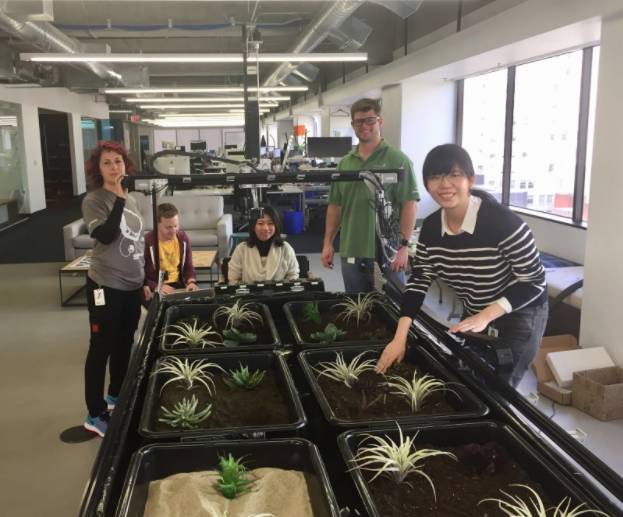Hack Attack: Global Participation in our Annual Hackathon

Every January Climate LLC conducts a Hackathon competition where teams from across the company come together to work on new ideas for complex, interesting projects and to address existing problems.
In this year’s competition, participants worked cross-functionally with teams they don’t get an opportunity to work with regularly and got a chance to learn new skill sets by “wearing many hats” within their project. Projects may or may not advance to potentially become actual products, but all of the work contributes in different ways toward improving the Climate FieldView™ platform.
It’s incredible to see the diverse teams that always come together for our Hackathon - groups made up of folks from Engineering, Product, Sales, Marketing, Design, Science & Data Analytics - a full spectrum of perspectives. This year we had 35 teams across 8 offices around the world participating! One project focused on developing product concepts powered by weather data with farmers in Brazil, inspired by the Google Design Sprint method. Datasets for this project came from 50 connected weather stations deployed by our team across 10 FieldView™ customers’ farms in Brazil. What’s even more impressive is the potential for a similar weather service using our own weather network to be offered in countries with poor weather-data infrastructure.

Another team assembled an experimental farmbot (open source agriculture robot) to aid in training weed detection and recognition models under different controlled environmental conditions (including soil types, available nutrients, lighting, soil moisture, etc.). The data collected from these controlled experiments could also help solve the inverse problem: given an image, what were the conditions that contributed to the weed outbreak? Herbicide-resistant weeds continue to be a challenge for farmers, causing tremendous impact to crop yield and quality. Note: no air plants were harmed during the construction of the bot!
In a different project, a team worked on detecting negative space within field boundaries that can cause false crop-stress regions to show up on field health images, complicate seed or fertility prescription creation, or cause challenges in identifying soil zones. Good detection techniques for negative space can help enable the Climate FieldView™ platform to suggest field-boundary corrections. This would, in turn, improve the overall FieldView experience and unlock the possibility for future insights for our customers.
Last but clearly not the least is our winning hackathon team (by popular vote), which focused on yield maps. Yield maps are foundational to the value delivered by the Climate FieldView platform. Yet, some harvest equipment does not support traditional yield monitors. Farmers often know the total mass harvested from a particular field, and it is feasible to distribute this harvested mass data using imagery as a guide to produce a yield map which shows sub-field variation.

The creativity and energy coming out of a the Hackathon week at Climate was an invigorating and rejuvenating experience for all Climate employees. It always kicks off the new year in an inspiring way. Each year, the projects our teams devise are more advanced and show potential to solve real-world problems and increase the effectiveness and usability of our products for farmers.



